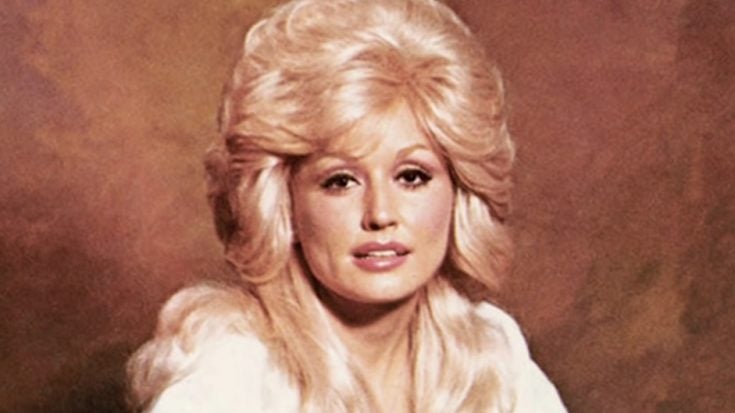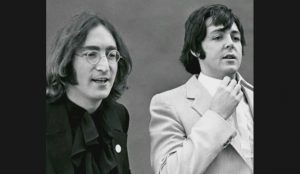The Scandals That Shocked The Country Rock Music Industry

via Vogue / YouTube
Country music is the most conventional and accommodating of the status quo among the several modern American music genres. In contrast to pop, rock, or hip-hop, country music, and its icons usually don’t push limits; instead, they emphasize the joys of everyday living.
As a result, controversy tends to have a bigger effect and generate more sensationalism and scandal when it occurs in the country music industry.
After establishing its cliches and being well-known in the 1940s, country music has given birth to many celebrities. However, because of bad choices, inappropriate behaviors, or unfavorable circumstances, some of its most well-known figures and prosperous artists have been involved in scandals that have either temporarily or permanently harmed their personal or professional lives.
This piece explores the most unexpected, sinister, and significant periods in the otherwise ostensibly honorable history of American country music.
That time when Dolly Parton got sued for going solo
By the end of 1967, Dolly Parton had become the main female vocalist on the syndicated country-themed variety show The Porter Wagoner Show thanks to her achieving national country success with the song “Dumb Blonde”.
Although this weekly and highly visible platform propelled Parton to immense fame, the demands of the job became too much for the singer.
Parton firmly began her solo career in 1974 when she left the said show. To mark this change and show her appreciation for Wagoner’s help with her career, Parton wrote “I Will Always Love You” in his memory. Whitney Houston’s version of the ballad topped Billboard’s pop chart for 14 weeks in the 1990s, and the song reached the top of the country singles list in 1974 (and again in 1982).
Even though the song seemed to have sentimental lyrics, Wagoner was nonetheless upset that Parton had left his program. Parton disclosed, “After I left and started doing well, Porter sued me for $1 million, and that was money that I didn’t have. I had to pay that over a long period of time. But you have to forgive and forget.”
The infamous Shania Twain-Mutt Lange spouse switch
Mutt Lange is one of the few well-known music producers, mostly because he oversaw some of the greatest-selling albums ever recorded. Following his success producing singles such as Back in Black by AC/DC, Hysteria by Def Leppard, and Waking Up the Neighbors by Bryan Adams, he became the producer of Canadian pop-country artist Shania Twain’s second album, The Woman in Me.
Although Twain’s first album sold little, The Woman in Me became an enormous hit, selling over 10 million copies, partly because of Lange’s unique ability to make music that sounds good on the radio, catapulting Twain into the status of a country music superstar. Lange and Twain were romantically linked in addition to their professional partnership, and they were finally married in December 1993.
Together, they raised a kid and worked hand in hand in both their personal and professional life. But in May 2008, they made their separation from one another known to the world, and a divorce followed. Frédéric Thiébaud, a businessman, provided Twain with comfort and support at this difficult time.
Their relationship began in the mid-1990s when Twain employed Thiébaud’s wife Marie-Anne as a cleaner and nanny. The four adults became close friends with Twain and Marie-Anne, and they frequently celebrated holidays and vacations together. Twain’s emotional support network crumbled after it was revealed that Lange and Marie-Anne had an affair. At The Oprah Winfrey Show, Twain reflected on this trying period and said, “The person to comfort me was Fred because he’s been through the exact same thing.”
Johnny Cash was briefly banned from the Grand Ole Opry
One of the most well-known names in country music is Johnny Cash, who is sometimes referred to as a maverick in the industry. By the time the legendary Man in Black walked the stage at the Grand Ole Opry in Nashville in 1965, he had already scored seven No. 1 singles on Billboard‘s country singles chart.
He was inducted into both the Country Music Hall of Fame and the Rock and Roll Hall of Fame. This wasn’t his first time on the nationally televised country show, but it was his last appearance at the iconic location for a long time.
By 1965, Cash was struggling with amphetamine and barbiturate addiction. One particularly memorable event happened during his Grand Ole Opry appearance in 1965, when growing agitated from drugs, Cash used his microphone stand to smash stage lights that were within his reach.
He was therefore told that he could no longer give performances at the Opry. Cash took off, using this as a pretext to act recklessly, and ended up breaking his nose for the third time in the hospital. Nevertheless, Cash overcame his addiction in the end, and in 1968 he was allowed to return to the Opry.
Morgan Wallen facing an ugly backlash after a racial slur
Shortly after his second chart-topping LP, Dangerous: The Double Album, hit the shelves in 2021, country singer-songwriter Morgan Wallen encountered a fast setback, putting himself in a poor light. The tabloid TMZ received and uploaded video footage showing Wallen using a racial slur.
Following a night of celebration in Nashville, Wallen was caught returning home, engaged in loud and belligerent behavior with his buddies. This grabbed the attention of a neighbor, who filmed the occurrence. Apart from sparingly using graphic language with one friend, Wallen also hurled a racist remark at another.
Wallen’s record company, Big Loud, responded by putting his contract on hold. Wallen’s tracks were taken down by the iHeartRadio consortium, which includes radio stations all over the country, including from his then-No. 1 album in the United States. The Country Music Television network also banned the budding country star.
“I’m embarrassed and sorry. I used an unacceptable and inappropriate racial slur that I wish I could take back. I promise to do better,” Wallen said in an apology to TMZ.
A drunk and naked Randy Davis was arrested
Randy Travis, well-known for his usually stoic approach to music traditionalism, made news in 2011 after being arrested twice for alcohol-related incidents. Travis was found by a Sanger, Texas police officer in a car outside of a church in February 2012 intoxicated and in the driver’s seat with an open bottle of wine next to him.
The country star was then arrested for public intoxication and held in the county jail for several hours. “I’m committed to being responsible and accountable, and apologize for my actions,” he said in a statement following his release.
Travis went into a Tioga convenience shop six months later to buy cigarettes only to reportedly storm out of the store after the clerk asked for payment. The singer was agitated and was also naked. Shortly after the clerk reported the incident to 911, another call was received reporting a man who was lying on the road next to a car.
This turned out to be Travis, who was taken into custody by state police on suspicion of operating a vehicle while intoxicated after declining to submit to field sobriety tests. Travis was charged with additional charges of retaliation after he threatened to shoot the state police during the arrest. Travis was freed when he paid his bail.
Jason Aldean’s pro-mob justice song controversy
The song “Try That in a Small Town”, which Jason Aldean released in 2023, features a storyline that describes a small American village where the people use their guns to quickly exact revenge on those they believe have committed crimes and offenses without following the proper judicial channels.
Aldean warns against trying acts like spitting at a police officer, burning a flag, robbing a liquor store, or stealing a car in his lyrics, which evoke a feeling of local vigilante justice. “See how far you make it down the road, around here, we take care of our own. I recommend you don’t try that in a small town,” Aldean sings in the chorus, reinforcing the concept.
The political imagery in the “Try That in a Small Town” music video served to highlight the message even more. Aldean sang the song next to a courtroom where a black man had been lynched in the past, and the music video featured images of BLM protests—activities that, in theory, one should not try in a small town.
After receiving several complaints, CMT took the video down from rotation. Despite the controversy, Aldean’s song peaked at No. 1 on both the Billboard country and pop charts. Aldean defended the video on the Coop’s Rockin’ Country Saturday Night podcast, saying, “If you’ve got common sense, you can look at the video and see I’m not saying anything that’s not true.”
Faith Hill’s funny and embarrassing reaction after losing a CMA award to Carrie Underwood
Faith Hill, who has been a well-known personality in country music since the 1990s, seemed to have a good chance of winning Female Vocalist of the Year at the 2006 Country Music Association Awards.
Her sixth studio album, Fireflies, had not only topped the charts but also produced big smash singles including “Mississippi Girl”, “Like We Never Loved at All”, and “Sunshine and Summertime”. But when the award went to then-recent American Idol victor Carrie Underwood, Hill’s surprise was evident.
Cameras recorded each nominee’s response as presenter Miley Cyrus made the announcement. Hill lifted her arms in triumph, expecting to hear her own name, only to find Cyrus had left her out of the conversation.
Her face changed from one of expectation to one of surprise and annoyance, and even though it was hard to hear, her lips seemed to say, “What?!” in confusion. Following the ceremony and the subsequent viral moment, Hill and her team attempted to contain the fallout by presenting the response as a playful jest.
https://twitter.com/Pea420Mendoza/status/1635089506968944642
Another CMA fiasco featuring an intoxicated Charlie Rich
A prominent honor, Entertainer of the Year at the Country Music Association Awards is bestowed upon few; past winners include Johnny Cash, Loretta Lynn, George Strait, and, in 1974, Charlie Rich. Symbolizing a passing of the torch, the 1975 CMA Awards organizers invited Rich to deliver the prize to the new winner, in an intriguing turn of events. Rich, on the other hand, took this literally and figuratively.
When Rich opened the envelope, he announced that John Denver—a performer more closely identified with pop and folk than country music in the middle of the 1970s—was the winner. The audience laughed as the infamous country superstar lit up the paper with the winner’s name with a lighter, saying, “The winner, my friend, Mr. John Denver.”
On behalf of his father, Charlie Rich Jr. offered a number of justifications in a since-deleted online post. During the CMA Awards, Rich Sr. was reportedly severely medicated due to multiple fractures in his foot.
In addition to suggesting that his father set Denver’s name on fire because he thought it would be funny, Rich Jr. explained, “Secondly, he and another country star got to drinking Gin and Tonics while waiting in the dressing room. The show was long, so by the time Dad was supposed to go on, the drinks on top of the medication got him buzzed.”
Garth Brooks got canceled a few times
With the sales of over 95 million albums, Garth Brooks became the all-time best-selling solo artist in the 1990s. Despite this enormous achievement, controversies may have harmed his career. The song “The Thunder Rolls”, which told the tale of a betrayed and abused wife seeking vengeance through murder, was released by Brooks in 1991.
However, the two main country music TV networks at the time, The Nashville Network and Country Music Television, declined to air Brooks’ new music video. “The Thunder Rolls” went to become a No. 1 on the country chart after VH1 consented to show it.
Charities fighting abuse gathered in support of Brooks, who defended the song by saying, “This is real life. Where I’m from, people aren’t afraid to talk about it.”
A little more than a year later, Brooks encountered yet another difficulty when his run of 13 straight country Top 10 hits was broken. A lot of radio stations refused to play the song “We Shall Be Free”, which calls for harmony and acceptance. The line, “When we’re free to love anyone we choose”, infuriated programmers because they saw it as a tacit endorsement of the LGBT community.
Brad Paisley was an accidental racist
Country music superstar Brad Paisley, who is best known for his fun, upbeat hits like “Online” and “Start a Band”, took a different approach with his 2013 single “Accidental Racist”. Usually a humorous singer-songwriter, Paisley co-wrote the song in an effort to start a discussion and investigate musical genre-blending.
He adopts the persona of a white Southern guy in the song, presenting images of the Confederate flag with pride and voicing his opposition to Confederate ideals such as institutionalized racism and slavery. By expressing his desire to learn more, Paisley invites discussion on racial concerns.
In a guest verse, rapper LL Cool J pushes for having a debate about racism by leading by example. He claims in his rap, “If you don’t judge my do-rag, I won’t judge your red flag. If you don’t judge my gold chains, I’ll forget the iron chains”. Nevertheless, LL Cool J and Paisley came under fire for what appeared to be a downplaying of the seriousness of slavery.
In The Atlantic, David A. Graham commented, “It’s pretty insane to compare an inoffensive piece of headgear to a flag that represents a treasonous secession movement [devoted] to maintaining the practice of slavery. It’s even more insane to compare jewelry to, you know, slave shackles.”
The misunderstood “Girl Crush”
A “girl crush” is defined by Dictionary.com as a “non-romantic admiration that one woman has for another”. People, especially women, have been using this lighthearted word to freely express their platonic admiration for one another. The 2010s saw the fad develop into a weekly tradition known as “Woman Crush Wednesday” on a number of social media sites.
Little Big Town, a country music group, became involved in this craze in 2015 when they released their hit song “Girl Crush”. The song’s lyrics discuss a woman’s conflicted feelings about her ex-partner’s new female companion.
Some fans of country music, though, were unable to understand or value the subtle subtext. The Washington Post was informed by Boise-based country radio DJ Alana Lynn that her station had received a lot of angry calls and threats of boycotts shortly after playing “Girl Crush”. The reason given was that the Little Big Town song was seen as “promoting the gay agenda”.
Numerous radio stations nationwide removed the song from their playlists in response to similar complaints. Even though “Girl Crush” peaked at No. 4 on the iTunes singles sales rankings and was quite successful, radio stations had trouble playing the song.
Spade Cooley unalived his wife
Renowned fiddler and bandleader Spade Cooley became a big figure in country music during the 1940s and 1950s Western swing period. Cooley became a national celebrity after hosting a small-town variety program in Santa Monica, California, in the 1940s.
His popularity soared after that. In 1945, Cooley wed Ella Mae Evans, his backup vocalist, and the two went on to have a string of big successes, including “Detour” and “You Can’t Break My Heart”. His debut record, Shame on You, peaked at No. 1 on the country chart for nine weeks in a row.
But when country music changed in the 1950s, Cooley’s fame declined, and he descended into a drug- and alcohol-addled lifestyle. After both of them cheated on each other in 1961, Evans filed for divorce. Soon later, Kern County authorities detained Cooley on suspicion of murder. According to the authorities, he killed Evans by beating and striking him severely in front of their 14-year-old daughter.
After originally pursuing an insanity defense that he later renounced, Cooley was found guilty of murder in 1961 and given a life sentence. Cooley was scheduled for release by a parole board in February 1970, despite his repeated expressions of regret. He did, however, receive a 72-hour respite in late 1969 so that he could play at a police function. Cooley finished his performance, walked off stage, and passed away.
Willie Nelson recorded an album to pay his tax debts
Willie Nelson is a well-known guitarist, songwriter, and troubadour in the country music industry. He achieved notable commercial success, especially in the 1970s and 1980s, with hits like “Whiskey River”, “On the Road Again”, “To All the Girls I’ve Loved Before”, and his platinum-selling supergroup, the Highwaymen. Nevertheless, a significant problem with the money made was that Nelson failed to pay his taxes.
Nelson blamed his staff for the financial mismanagement, especially their use of dubious tax havens. During operations on Nelson’s properties in six states in 1990, apparel, master recordings, musical instruments, gold and platinum album awards, and other valuables were taken or confiscated by federal officials.
These goods were put up for auction by the IRS in an effort to recoup a portion of Nelson’s $32 million in outstanding tax obligation, which also included $10.2 million in penalties and interest.
Nelson and the IRS came to a $9 million settlement in 1993, of which Nelson had already reimbursed $3 million. A portion of this compensation originated from an infomercial record called The IRS Tapes: Who’ll Buy My Memories? that was released in 1992.
Hank Williams Jr. compared Obama to Hitler
Hank Williams Jr., the more rebellious son of the legendary country music artist Hank Williams, became known as a party-country icon with hits like “Whiskey Bent and Hell Bound” and “Family Tradition”. In 1989, Williams gained considerable recognition when ABC asked him to rework his 1984 song “All My Rowdy Friends Are Coming Over Tonight” into the opening theme for its hugely popular “Monday Night Football” broadcasts.
For more than twenty years, this anthem was the weekly motivating song, even after Monday Night Football” moved to ESPN. However, Williams made contentious remarks in 2011 when he appeared on the Fox News talk program Fox and Friends.
The discussion revolved around then-President Barack Obama, a progressive, and Speaker of the House John Boehner, a conservative, going golfing together. “One of the biggest political mistakes ever,” according to Williams, who compared it to “Hitler playing golf with Netanyahu”.
Williams apologized through a press release, admitting that his frustration over political leaders’ companionship on the golf course led to a regrettable statement. ESPN expressed extreme disappointment with Williams’ remarks and quickly removed the singer’s theme song from their show.
Jerry Lee Lewis’ scandalous marriage to an underage cousin
Country music had a major influence on the development of rock ‘n’ roll, which occurred in the 1950s. Situated between the historic origins of the genre and its ongoing evolution, Jerry Lee Lewis was on his way to becoming a superstar until his contentious third marriage caused a stir throughout the world.
Even though he was extremely successful with classics like “Whole Lotta Shakin’ Goin’ On” and “Great Balls of Fire”, Lewis faced a turning point in December 1957 when he married Myra Gale Brown, even though he was still legally married to his second wife. Brown was not only his second cousin but also only 13 years old, which fueled even more controversy.
The pair first appeared in public during Lewis’s 1958 U.K. tour, drawing unwelcome attention when concerns were posed by reporters at London’s Heathrow Airport. Lewis made up the notion that his new bride was fifteen in an effort to minimize the circumstances.
When the shady information made it to the United States, Lewis’s career took a serious hit. His songs were dropped by radio DJs, his tour was canceled, and his appearance fee fell from $5,000 per night to $350. Following their divorce in 1970, Brown revealed that he had been abused repeatedly by Lewis during their marriage.
When Loretta Lynn got canceled hard by conservatives due to a song about birth control
Authenticity is highly valued in the country music industry, and Loretta Lynn made a name for herself in that regard. Hit songs like “Blue Kentucky Girl” and “Coal Miner’s Daughter”, which are mostly autobiographical, brought Lynn a considerable following.
However, the release of her controversial “The Pill”, which was recorded in 1972 but shelved for three years, dealt her a blow. Lynn co-wrote the song as a celebration of the birth control pill and the women’s rights revolution it represented. Lynn got married at the age of 15. By the time she was twenty, she had four kids.
The conservative and religious segments of the country music industry took issue with “The Pill”, given the divisive nature of reproductive rights at the time. The song swiftly rose to No. 5 on Billboard‘s Hot Country Songs, but once radio stations began to ban it, its airplay drastically decreased.
In spite of this setback, “The Pill” became the most important crossover hit of Lynn’s career as pop music fans became curious about the controversy and it shot to No. 70 on the pop-based Hot 100.
https://twitter.com/ThatEricAlper/status/1577317705501245441
The Tomato-gate controversy
As a consultant for country radio, Keith Hill advised stations on how to best utilize their listenership through programming. In 2015, Hill revealed what he believed to be the secret to success in an interview with Country Aircheck. advising stations to refrain from playing consecutive songs by female singers, comparing them to salad garnishes, and emphasizing male artists as the main focus.
He suggested, “If you want to make ratings in country radio, take females out. Mainstream country radio generates more quarter hours from female listeners at a rate of 70 to 75%, and women like male artists.”
Hill’s remarks, dubbed “Tomato-gate” by the media, bolstered the belief that country radio was sexist. Merely 25% of the most popular songs on country radio at the time of Hill’s statements were female-performed. Disgruntled fans even went to the 2015 CMA Music Festival wearing shirts that read “Let the Tomatoes Play”.
CMT executive Leslie Fram criticized Hill’s statement, saying, “This posting is taking us 20 steps backward. It’s an insult to every female artist in the format.” Martina McBride expressed her surprise and displeasure by ordering and distributing shirts with the word “Tomato”.
The nearly-career-ending Dixie Chicks comments against George W. Bush
In the late 1990s and early 2000s, the country trio Dixie Chicks gained popularity as one of the top groups in the genre. Yet, lead vocalist Natalie Maines’ statement during a London concert in March 2003—just before the contentious US invasion of Iraq—caused their popularity to plummet, as CNN reported.
“Just so you know, we’re ashamed the president of the United States is from Texas,” Maines dropped during the said concert. And the consequences were swift and fierce. The radio network Cumulus directed its affiliates to stop airing Dixie Chicks songs. Two weeks after Maines made his remarks, their hit song “Travelin’ Soldier” which shot to the top of Billboard’s country singles chart quickly fell all the way to the bottom.
Two days after the London event, Maines reiterated her comments in a statement, highlighting the right to free speech as an American and expressing her displeasure with the president’s actions.
Maines openly apologized to President Bush a few days later. After the release of their album Not Ready to Make Nice, which includes a title tune that references the artists’ death threats, the group now known as The Chicks, finally got back their radio station airplay three years after the infamous comments.











